Commercial Septic System Maintenance: Expert Comprehensive Guide
Commercial septic system maintenance guide: Expert tips for efficient wastewater management, regular inspections, and preventing costly repairs.
Proper maintenance of a commercial septic system ensures the system functions efficiently and avoids costly repairs. Commercial properties often see higher usage, making regular maintenance crucial for preventing backups and maintaining a healthy environment.
Table of Contents
Key Takeaway
- Regular inspections and pumping are essential.
- Water efficiency helps reduce strain on the system.
- Proper waste disposal maintains system health.
- Drainfield care is crucial for overall functionality.
Why Commercial Septic System Maintenance is Important
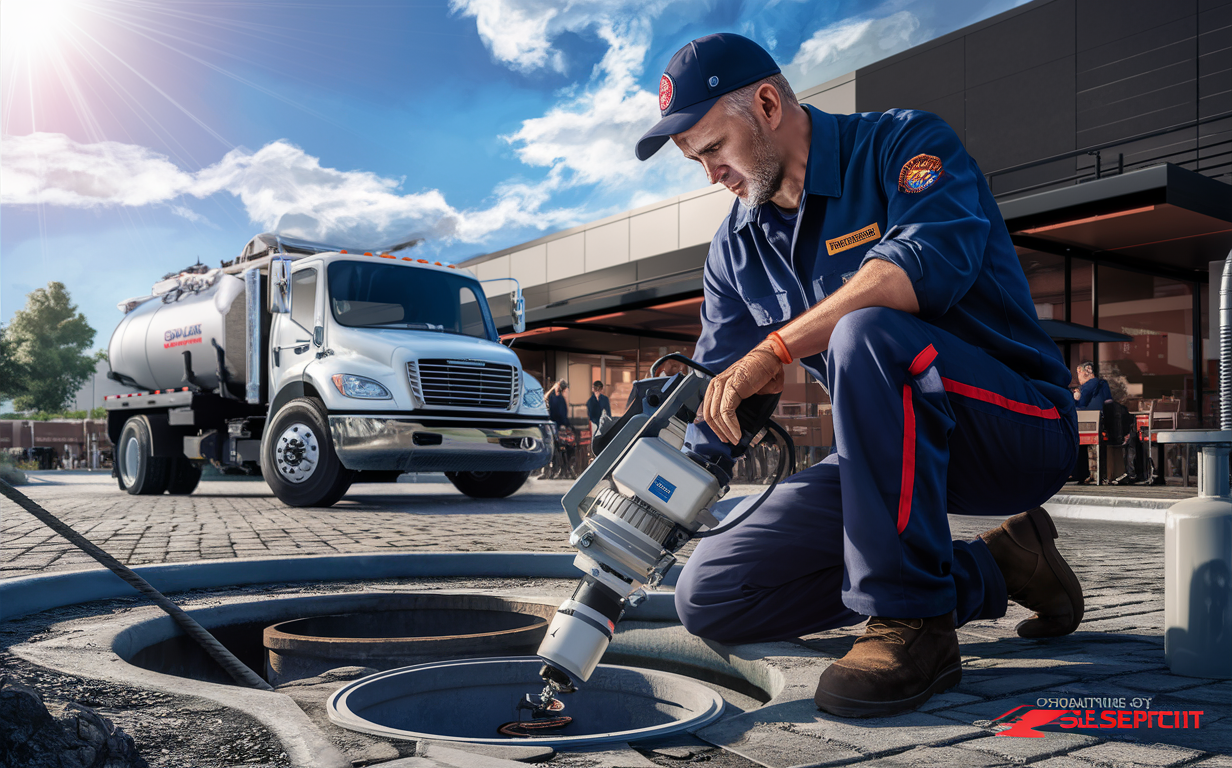
Commercial septic systems handle a larger volume of wastewater than residential systems. This means they are more prone to issues if not correctly maintained. Regular upkeep ensures the system works efficiently, preventing backups and environmental contamination.
Regular Inspections and Pumping
Consistent inspections are necessary for identifying potential problems early. Scheduled pumping removes accumulated solids, preventing overflow and backups. For commercial systems, it’s recommended to have an inspection and pumping every 1-3 years, depending on usage.
| Inspection Frequency | Pumping Frequency | Potential Issues |
|---|---|---|
| Annually | 1-3 years | Clogs, backups |
| Every 6 months | 1-2 years | Early detection |
| Quarterly | Annually | High usage areas |
Effective Water Usage
Using water efficiently can significantly reduce the strain on your septic system. High water usage can overload the system, causing solids to move into the drainfield, leading to blockages and system failure. Implementing water-saving devices and practices can help maintain balance.
Water-saving tips:
- Install low-flow faucets and toilets
- Fix leaks promptly
- Educate employees about water conservation
- Use energy-efficient dishwashers and washing machines
Proper Waste Disposal
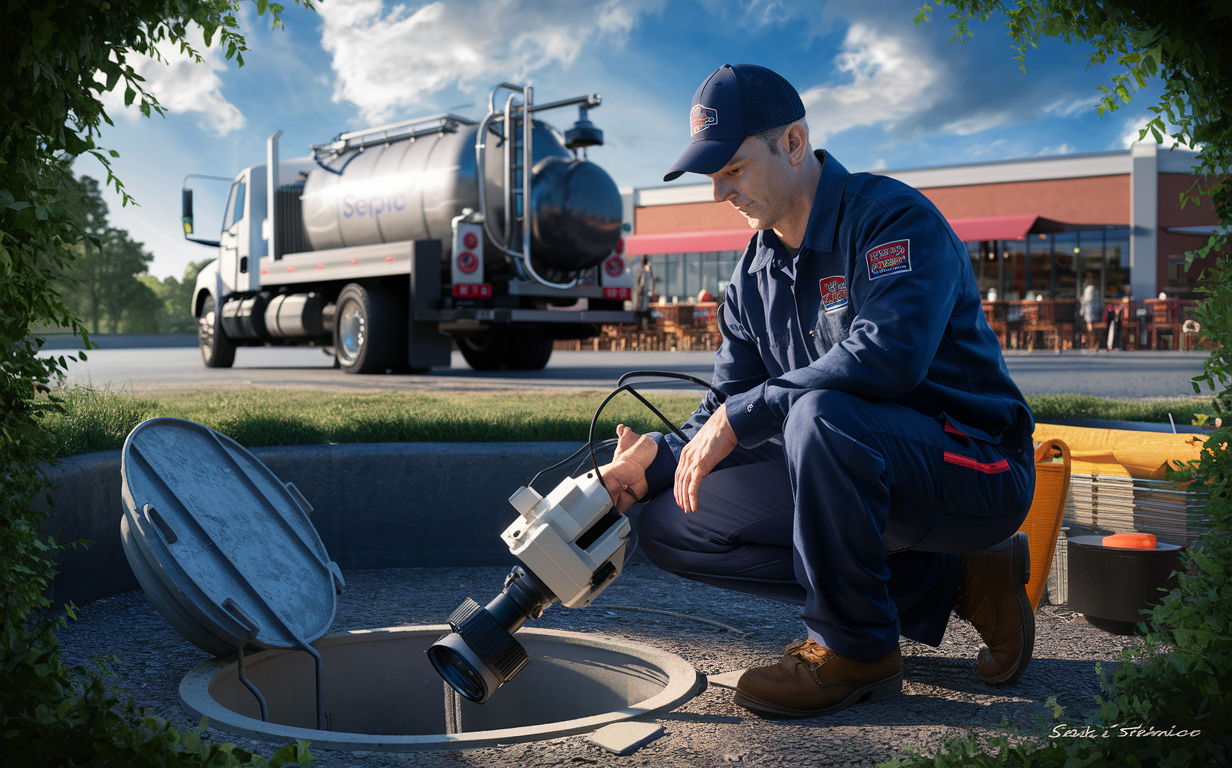
Only flush and dispose of waste that is septic-safe. Non-biodegradable items, chemicals, and grease can damage the system. Providing properly labeled disposal bins and educating employees about what can and cannot go into the system is critical.
Drainfield Care
The drain field is a crucial component of your septic system. It allows treated wastewater to seep into the soil. To maintain its functionality:
- Keep heavy vehicles and equipment off the drain field
- Avoid planting trees or shrubs too close as roots can interfere
- Ensure proper grading to avoid water pooling
Signs of Septic System Issues
Recognizing the early signs of septic system problems can save you from more significant issues down the line. Look out for:
- Foul odors around the property
- Slow drains
- Water pooling on the lawn
- Lush, green grass over the drain field
Maintenance Checklist
Maintaining a commercial septic system involves several steps:
- Regular inspections – Schedule with a professional
- Pumping schedule – Follow recommended guidelines
- Water usage monitoring – Implement conservation practices
- Waste disposal education – Inform employees
- Drainfield care – Protect and maintain the area
Professional Services for Peace of Mind
Hiring a professional septic service provider like Texway Wastewater Services ensures your system is maintained by experts. They offer comprehensive services from pumping to inspections and repairs, ensuring your system remains in top condition.
Importance of Using Quality Products and Equipment
Using professional-grade tools and equipment ensures the job is done correctly and efficiently. High-quality materials and equipment reduce the risk of damage during maintenance and repair tasks.
Customer Testimonials
Hearing from other businesses can provide insight into the quality of service you can expect. Texway Wastewater Services has a track record of satisfied clients, praising their prompt service and thorough work.
Common Septic System Problems and Solutions
Understanding common issues can help in maintaining your system:
- Clogs and backups: Regular pumping and proper waste disposal prevent these.
- Leaking tanks: Inspect and repair any cracks or damages.
- Drainfield issues: Regular care and avoiding heavy loads prevent damage.
| Problem | Cause | Solution |
|---|---|---|
| Backups | Overloaded tank or clogs | Regular pumping and inspections |
| Bad odors | Poor maintenance or leaks | Immediate inspection and repair |
| Slow drains | Blocked pipes or full tank | Pumping and pipe cleaning |
Environmental Impact
Maintaining your septic system isn’t just about functionality; it’s also about protecting the environment. Properly treated wastewater prevents contamination of local water sources, safeguarding public health.
Cost of Neglect
Ignoring septic system maintenance can lead to costly repairs and environmental fines. Regular maintenance is a small investment compared to the potential costs of neglect.
Advanced Septic Solutions
Technological advancements have introduced smart septic systems that monitor usage and alert you to potential issues. These systems can help in maintaining efficiency and preventing problems before they become severe.
Facts About Commercial Septic System Maintenance
- Regular Inspections: Commercial septic systems should be inspected at least once a year to ensure proper functioning. This includes checking the scum and sludge levels, inspecting the baffles, and examining the pipes for cracks or leaks.
- Proper Use: Commercial septic systems are designed to handle a certain amount of wastewater. Exceeding this capacity can lead to system failure. Make sure to not dispose of large amounts of grease, oil, or other heavy materials down the drain.
- Pumping: Septic tanks should be pumped out every 3-5 years, depending on the size of the business and the amount of wastewater generated. This helps prevent solids from accumulating and causing clogs or backups.
- Preventative Maintenance: Regular maintenance practices, such as adding bacteria or enzymes to the system, can help break down waste and prevent clogs. This can be done through the use of septic system additives.
- Professional Help: If you notice any signs of system failure, such as slow drains, foul odors, or standing water, it’s important to call a professional septic service provider. They can diagnose and repair any issues before they become more costly and time-consuming to fix.
Tips for Seasonal Maintenance
Different seasons can affect your septic system:
- Winter: Insulate exposed pipes to prevent freezing
- Spring: Inspect for any winter damage
- Summer: Manage high usage during peak times
- Fall: Prepare the system for the winter months
Conclusion
Maintaining a commercial septic system is crucial for the smooth operation of your business. Regular inspections, proper waste disposal, and professional services ensure your system remains functional and efficient. By following these guidelines, you can avoid costly repairs and environmental issues, keeping your property and the surrounding area safe and clean.
For top-notch commercial septic system maintenance, contact Texway Wastewater Services or schedule a service online.

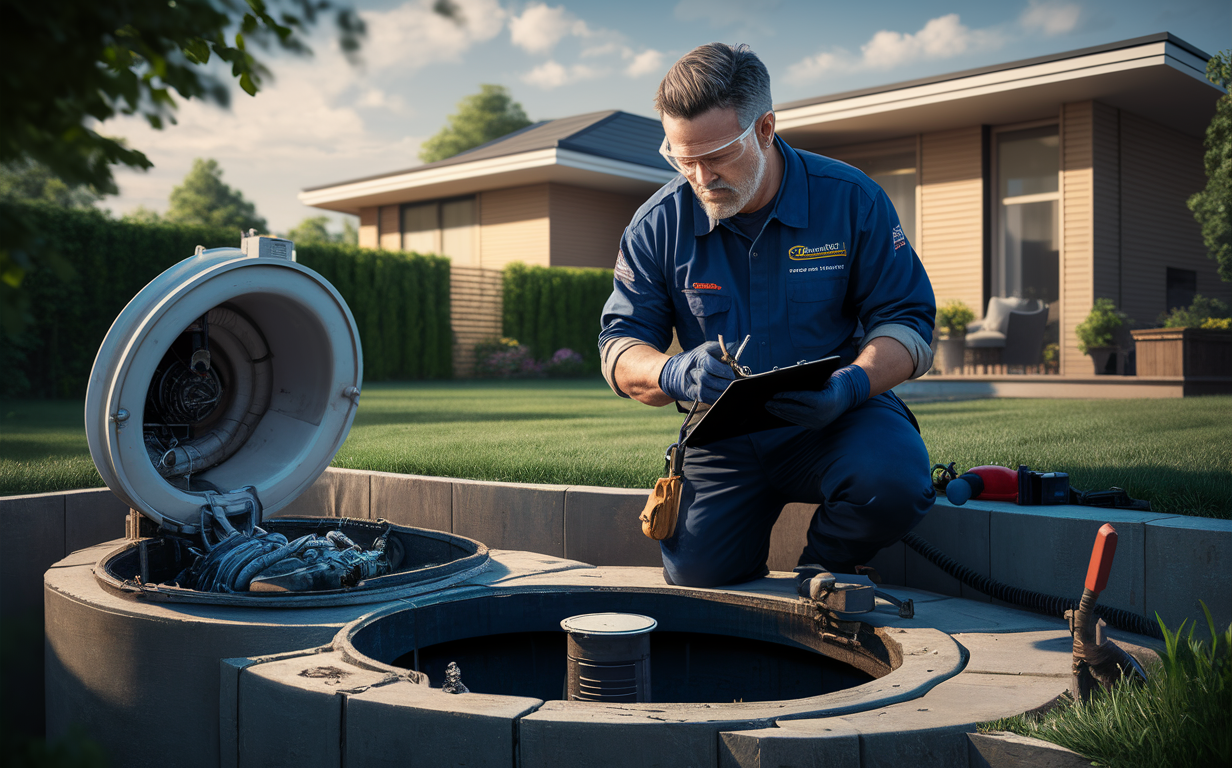
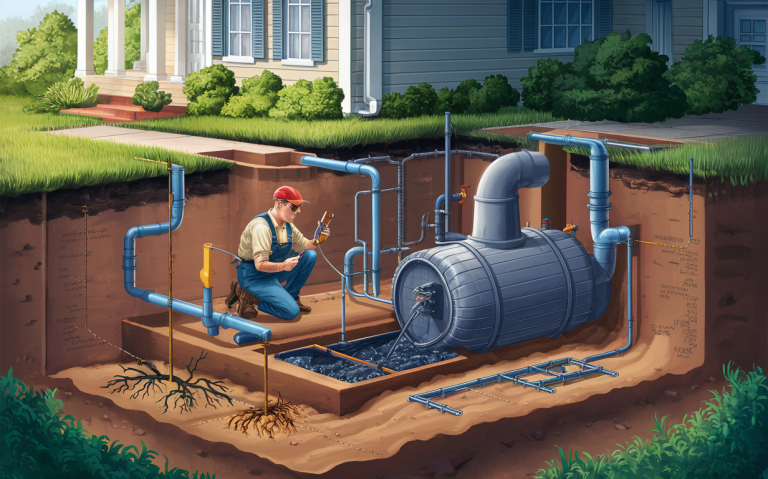
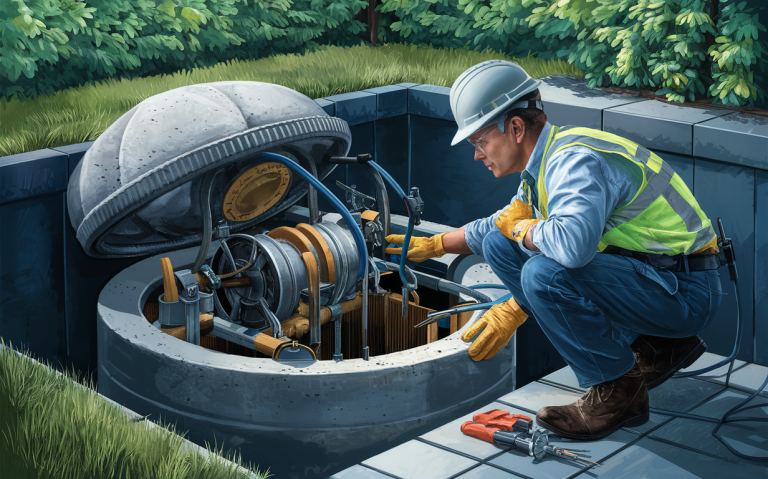
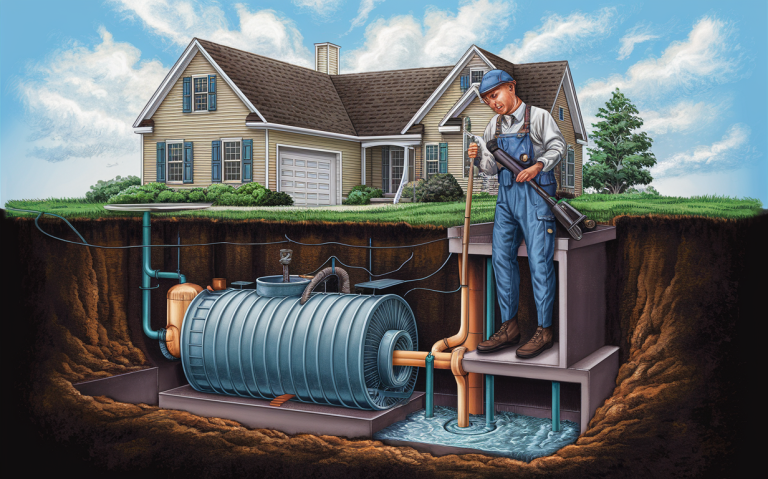

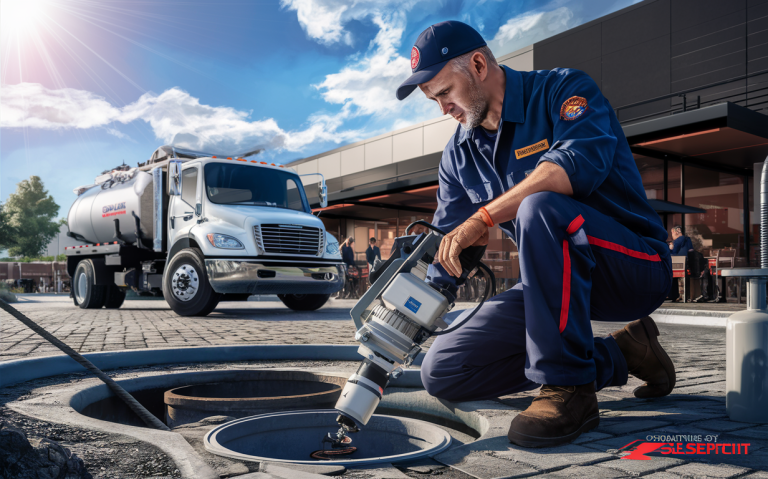
 Texway Wastewater Services is a septic, wastewater, and excavation company based out of Burleson, Texas and serving the surrounding areas. We specialize in
Texway Wastewater Services is a septic, wastewater, and excavation company based out of Burleson, Texas and serving the surrounding areas. We specialize in